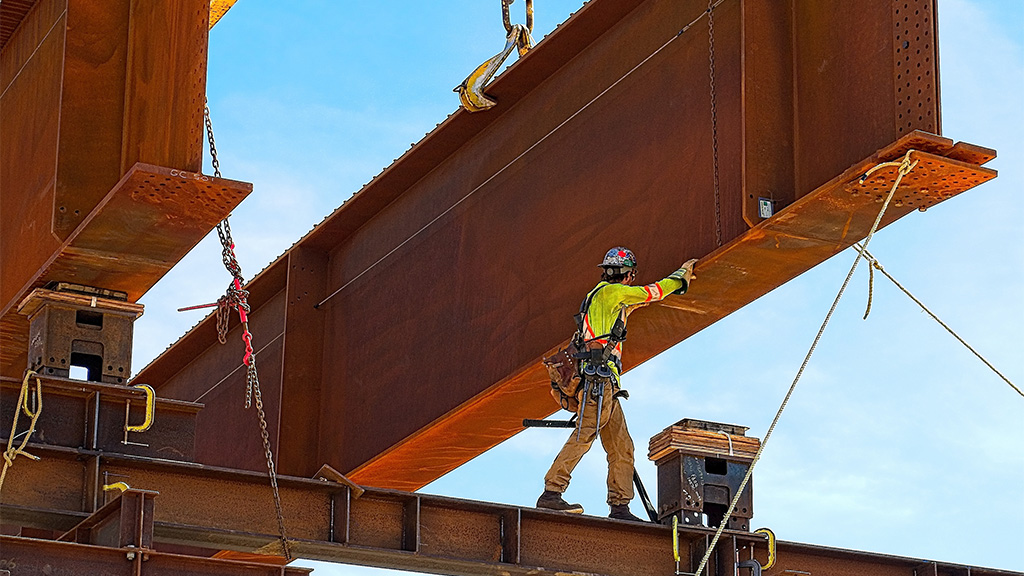With a $1 billion surplus forecasted and a record $3.7 billion investment in infrastructure, stakeholders in Saskatchewan are welcoming the 2023 budget but want a long-term plan for growth.
“We were glad to see that this year’s budget increased from the previous one and our members are looking forward to the Ministry of Highways capital program breakdown and how it will impact our industry,” said Shantel Lipp, president of the Saskatchewan Heavy Construction Association (SHCA).
Lipp said the association is looking forward to sitting down with policy-makers to build a more fulsome long-term plan that targets provincial growth through trade and essential infrastructure.
“Saskatchewan’s growth depends on trade. Countries around the world want to know that when they buy from Saskatchewan, this province has the infrastructure to move what they are purchasing,” Lipp said.
But trade was not entirely forgotten, with the province setting up a trade office in Germany at the cost of $1.4 million to increase the province’s visibility. So far, Saskatchewan has set up offices in Mexico, the United Kingdom, United Arab Emirates, India, Singapore, Vietnam, China and Japan, according to the budget.
“When you invest in the infrastructure that will get those goods to market more efficiently, you become more competitive in the world,” Lipp said.
“That economic growth can then generate revenues that support areas such as health care, education and social programming, making Saskatchewan an even better place to live.”
Lipp hopes to see long-term planning put the construction sector in Saskatchewan on the same stable footing the industry has in Alberta and Manitoba.
The SHCA noted Alberta and Manitoba are making three-year commitments around trade infrastructure which sends a strong message to partners they are ahead of the curve.
“The SHCA would encourage the Saskatchewan government to recognize the value of making five-year commitments,” writes the association in a news release.
“It helps build our reputation in the world for being a reliable and competitive trading partner while telling voters the government of this province invests purposefully and strategically so a return on that investment is delivered.”
The Saskatchewan Chamber of Commerce noted the budget falls short in several key areas.
It criticized the province for continuing to charge PST to most businesses on their inputs, stating it has a “detrimental effect on competitiveness, investment and growth.”
“Business is the driver of Saskatchewan’s strengthening fiscal position,” said Prabha Ramaswamy, CEO of the Saskatchewan Chamber of Commerce.
“It is critical to address PST and corporate tax reform to enhance competitiveness.”
Similarly, the Saskatchewan Urban Municipalities Association (SUMA) criticized the government for failing to remove PST charges on municipal construction projects, noting medium-sized cities return 24 to 39 per cent of their total Municipal Revenue Sharing grant back to the province because of it.
“As costs continue to rise due to inflation, the percentage of Municipal Revenue Sharing that we return to the province in the form of PST on our municipal construction projects also continues to increase,” said SUMA President Randy Goulden.
“We could do so much more in our communities if the funding stayed in our municipalities.”
The chamber of commerce also felt a zero per cent tax freeze on the Small Business Tax should not have been lifted.
But it expressed satisfaction with the $1 billion surplus, a $5 million newcomer investment and the record setting investment in capital infrastructure.
“For the Saskatchewan business community this supports job creation and opportunities in the province,” the chamber wrote in a release.
The chamber also touted investments in health care and education as increasing quality of life, which leads to a stronger draw for people to move to the province.
Saskatchewan is also investing $89.4 million to build, operate and maintain the transportation system in the northern part of the province, a move that drew support from SUMA.
The Province is also moving to support the forestry industry by committing an additional $6 million to preserve and maintain northern roads essential to the sectors operations.











Recent Comments
comments for this post are closed